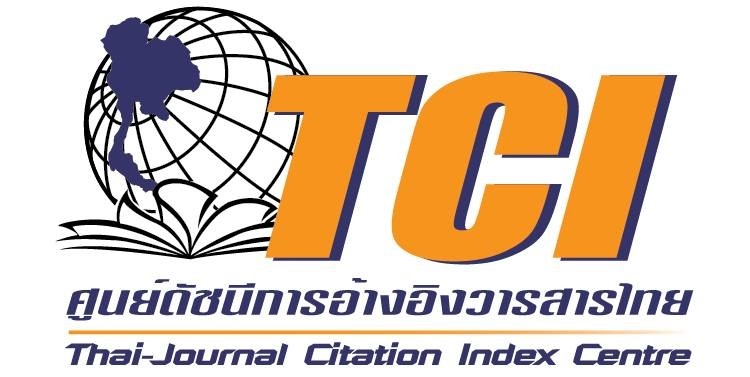Developing management guidelines for constructing curriculum of Chinese history subject for vocational college at Shangrao City Xinzhou secondary professional school, China
คำสำคัญ:
management guidelines;, history course;, management;, vocational collegesบทคัดย่อ
This article aimed to study (1) the problems of teaching Chinese history subjects for vocational colleges. The article also aimed to investigate the need for guidelines specifically designed for Chinese history subjects in vocational colleges. (3) To construct guidelines for creating a curriculum of Chinese history subjects for vocational colleges. The sample was 300 secondary students. They were selected by random sampling. The instrument for collecting data was a questionnaire. We analyzed the data using descriptive statistics and content analysis. The research results were found as follows. The issue of students' reading content in history classes not aligning with their historical knowledge base is a significant concern. This demonstrates that there are significant challenges in terms of content consistency. 2) Students rated their desire for more history communication time at school at a high level. This emphasizes the need for more interactive and immersive learning opportunities in history education. 3) The constructed guidelines encompassed eight essential topics: General Provisions, Management System, Teaching Objectives and Requirements, Course Settings, Evaluation and Testing, Teaching Methods and Approaches, Teaching Management, and Supplementary Provisions. Expert evaluations confirmed the validity and applicability of these guidelines, suggesting their potential effectiveness in addressing the identified challenges in managing and improving the history curriculum at Shangrao Xinzhou Secondary Specialized School.
เอกสารอ้างอิง
Black, P., & Wiliam, D. (2009). Developing the theory of formative assessment. Educational Assessment, Evaluation and Accountability, 21(1), 5-31.
Guo Yilang. (2019). Research on the Cultivation of Core Literacy in the History Discipline of Middle-Level Students [D]. Hubei Normal University,2019. (02): 24-25.
Han Pei. (2021). Research on the implementation status of the history curriculum in Baoshan vocational and technical schools in Shanghai[D]. Shanghai Normal University. DOI:10.27312/d.cnki.gshsu.2021.001334.
Hattie, J. (2009). Visible learning: A synthesis of over 800 meta-analyses relating to achievement. Routledge.
Kennedy, M. M. (2016). How does a literature review contribute to theory development? In Handbook of research on teaching (5th ed., pp. 117-141). American Educational Research Association.
Li Ting, Wang Xin Guo. (2020). Discussion on the optimization of teaching strategies of the history curriculum at the high school level under the orientation of core literacy. Jiangsu Education Research (03), 20-23. doi:10.13696/j.cnki.jer1673-9094.2020.03.005.
NPCSC. (2022). Revision of the Vocational Education Law of the People's Republic of China comes into effect[J]. Vocational and Technical Education, 44(03): 9-10
Ornstein, A. C., & Hunkins, F. P. (2017). Curriculum: Foundations, principles, and issues (7th ed.). Pearson.
Ren Jinhua. (2021). Exploration on the path of cultivation of craftsmanship In history teaching in vocational colleges and universities. Academy (16), 26-28.
Wiles, J., & Bondi, J. (2015). Curriculum development: A guide to practice (9th ed.). Pearson.
Wiles, J., & Bondi, J. (2015). Curriculum development: A guide to practice (9th ed.). Pearson.
Xu Jiang. (2023). Analysis of Cultivation Strategies of Core Literacy in History Disciplines for Secondary Students[C]//Guangdong Teachers' Continuing Education Society. Proceedings of the Academic Symposium on Teacher Development Forum of Guangdong Teachers' Continuing Education Society (VI). Proceedings of the Academic Symposium on Teacher Development Forum of Guangdong Teachers' Continuing Education Society (VI),2023: 914-917. DOI: 10.26914/c.cnkihy.016636.
Yamane, T. (1973). Statistic: An Introductory Analysis. (3rd ed.). New York: Harper and Row.
Zheng Lin. (2023). Based on the development of students' core literacy Realizing the change of history curriculum parenting mode-Interpretation of the connotation of the Compulsory Education History Curriculum Standard (2022 Edition)[J]. China Ethnic Education, (Z1): 34-37. DOI:10.16855/j.cnki.zgmzjy.z1.009.
ดาวน์โหลด
เผยแพร่แล้ว
รูปแบบการอ้างอิง
ฉบับ
ประเภทบทความ
สัญญาอนุญาต
ลิขสิทธิ์ (c) 2024 journal of Public and Private Issues

อนุญาตภายใต้เงื่อนไข Creative Commons Attribution-NonCommercial-ShareAlike 4.0 International License.


 ผศ.ดร.ละมัย ร่มเย็น
ผศ.ดร.ละมัย ร่มเย็น






